Contents
The 1% Principle
The Law of the Small
The Law of Cumulative Effect
The Law of Positive and Negative
The Law of Gradual Change
The Law of Constant Improvement
The Law of Sowing and Reaping
The Law of the Decision and Action
The Law of the Paradox
Examples of the 1% Principle in your life, work and business
Use the 30 Day Programme to successfully implement the 1% Principle in your life, work and business
Whats your passion?
You miss 100% of the shots you dont take!
The power of visualisation
Be optimistic
Focus
Take time out
Become accountable
Be authentic to yourself and create a personal vision
Be persistent
Take risks
Get organised
Work to your strengths
Craft consistency
What is success to you?
Getting and keeping momentum
Become a better communicator
Take joy in the small things
Practise gratitude in all you do
Practise self-discipline
Opportunity COMPASS
Goal Achievement Programme
Map COMPASS
Goal Achievement Programme
Proceed COMPASS
Goal Achievement Programme
Assess COMPASS
Goal Achievement Programme
Score COMPASS
Goal Achievement Programme
Success COMPASS
Goal Achievement Programme
Become resilient and happy with change
Be a loving family member and friend
Who am I? Who do I want to be?
What to do when your goals go wrong
The incredible power of just asking
HarperCollins Publishers
First published in 2013
by HarperCollins Publishers (New Zealand) Limited
PO Box 1, Shortland Street, Auckland 1140
Copyright Tom ONeil 2013
Tom ONeil asserts the moral right to be identified as
the author of thiswork.
All rights reserved. No part of this publication may be
reproduced, stored in aretrieval system or transmitted in any
form or by any means, electronic, mechanical,photocopying,
recording or otherwise, without the prior written permission of
thepublishers.
HarperCollins Publishers
31 View Road, Glenfield, Auckland 0627, New Zealand
Level 13, 201 Elizabeth Street, Sydney, NSW 2000, Australia
A 53, Sector 57, Noida, UP, India
7785 Fulham Palace Road, London W6 8JB, United Kingdom
2 Bloor Street East, 20th floor, Toronto, Ontario M4W 1A8, Canada
10 East 53rd Street, New York, NY 10022, USA
National Library of New Zealand Cataloguing-in-Publication Data
ONeil, Tom, 1971
The 1% principle / Tom ONeil.
ISBN 978-1-77554-023-6
1. Success. 2. Change (Psychology).
3. Self-actualization (Psychology).
I. Title.
158.1dc 23
ISBN: 978 1 77554 023 6 (pbk)
ISBN: 978 1 77549 055 5 (epub)
Cover design by Cheryl Rowe
Cover image by Cary Johnson
The 1% Principle
Small incremental steps, practised over time
and consistently focused towards a specific goal,
cant help but bring your dreams to reality.
Most business and self-development books make a promise of secret wisdom on the cover, yet only reveal their key points a couple of hundred pages into the book. The 1% Principle is different. This book will immediately give you the key to massively increasing your business and personal success, then spend the rest of the book explaining how to implement these principles in a real-world way.
Unfortunately, most people think self-improvement and life planning is something only people who own Ferraris do. The vast majority of people spend far more time planning their wedding day or buying a second-hand car than they do planning their life and their career.
This is why fewer than one in 30 people invest in motivational books and programmes and actively plan their lives through formal goal setting. On a positive note, you are probably one of these people as you are reading these words right now!
The 1% Principle focuses on making the transition to a better and more productive life a lot easier. Achieving lots of mini-goals over a short to medium period, you can quickly transform what you achieve and how you want to live.
The entire philosophy is very simple. It is based around asking the following questions:
 Me The 1% Principle What is one thing I can do today to improve my life by 1%?
Me The 1% Principle What is one thing I can do today to improve my life by 1%?
 My community The 1% Principle What is one thing I can do today to improve the life of someone near me by 1%?
My community The 1% Principle What is one thing I can do today to improve the life of someone near me by 1%?
Unlike a formal goal programme, the 1% Principle is more of a life philosophy, rather than a tool or resource you draw upon during a set time. As you become more successful using this principle, you will start to reflect on it more and more as you begin to see positive changes in key areas of your life. Over time, it will become an inbuilt and automatic way of thinking, helping you to reach further in your life, without being fully conscious of the effort required.
The butterfly effect
In 1961, American mathematician and meteorologist Edward Lorenz was using a numerical formula to assess a weather model, when, as a short cut, he entered the decimal 0.506 instead of 0.506127. The result was a completely unexpected and quite different weather scenario from what was initially predicted.
From this experience Lorenz coined the term butterfly effect, whereby small changes in an environment (such as the flap of a butterflys wings) can have major consequences (a tornado in Texas).
The butterfly effect has its roots in chaos theory and is very similar to the 1% Principle, as it reinforces the fact that small initial changes of seemingly minor significance can set the scene for major transformation.
For example, a decision I personally made to get fit and lose some excess weight a number of years ago led me to start jogging. Six months later, this led to my first competitive (albeit slow) run. This in turn saw me one year later complete the Oxfam Trailwalker, successfully walking 100 kilometres in under 24 hours.
Little initial decisions and challenges successfully overcome build a foundation to let you go to the next stage. At that next stage, new and potentially unforeseen opportunities open up, which help you to rise even further in your personal development very quickly.
We set goals many times every day. Whether its to make the bus on time to work, to catch up with some friends or to go to do some digging in the garden, we tend not to think about these as goals as they are just part of what we do to have a functional life.
We have all been told throughout our lives how important it is to set goals; however, the stark fact is that fewer than 5% of people have formal written goals that they regularly update and manage as they go through their life.
A popular story, cited by many motivational leaders, recalls a Yale University study that took place in 1953. Researchers interested in studying goal setting surveyed the graduating seniors from Yale University about their goals and aspirations for the future. They discovered that only 3% of the graduating class had detailed, written goals. When they tracked down the same graduates in 1973, the researchers were amazed at the results. They discovered that the same 3% who had clearly written goals when they graduated in 1953 were more successful, and worth more in terms of wealth, than the other 97% put together.

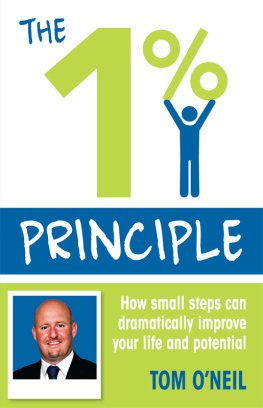
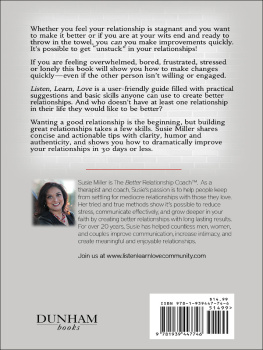




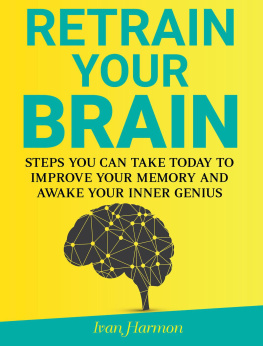

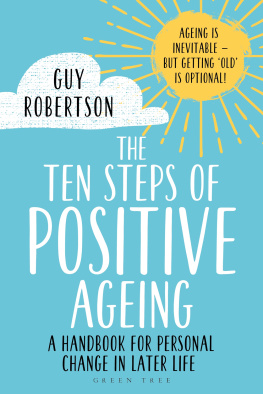


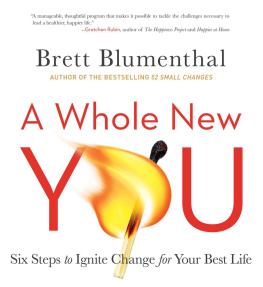

 Me The 1% Principle What is one thing I can do today to improve my life by 1%?
Me The 1% Principle What is one thing I can do today to improve my life by 1%?